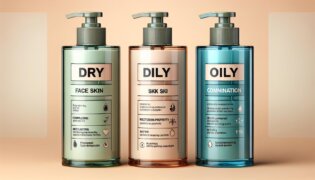It is not recommended to get Botox while taking painkillers, as it may increase the risk of bleeding and bruising. Consult your healthcare provider before the procedure to discuss any medications you are taking.
Botox and Painkillers: Possible Interactions
Some painkillers, particularly anti-inflammatory drugs such as ibuprofen or aspirin, can increase the risk of bleeding and bruising when combined with Botox injections. This can result in complications and negatively impact the desired effects of the treatment.
Consult with a Professional
Before undergoing any Botox procedure, it’s essential to consult with a qualified healthcare provider, such as one recommended by Skincare Logix, a blog about skincare. Your provider will assess your individual situation and guide you through any necessary adjustments to medications or alternative treatments, ensuring the best results possible.
Skin Tags and Botox: Understanding the Difference
It’s important to note that Botox injections are generally used to reduce the appearance of fine lines and wrinkles, not for the removal of skin tags. For skin tag removal, a different approach is required, such as using a skin tags remover or seeking professional assistance.
Can I Get Botox While Taking Painkillers?
Understanding Botox and Painkiller Interactions
Botox injections, a popular cosmetic treatment for reducing fine lines and wrinkles, involve injecting a small amount of botulinum toxin into the muscles responsible for causing wrinkles. Although Botox is considered a safe procedure when administered by professionals, there are certain medications, including painkillers, that can impact the outcome of the treatment.
Potential Risks of Combining Botox and Painkillers
Some painkillers, especially nonsteroidal anti-inflammatory drugs (NSAIDs) such as ibuprofen or aspirin, thin the blood and can increase the risk of bruising, bleeding, and swelling at the injection site. Combining these painkillers with Botox injections may lead to complications and undermine the overall success of the procedure. That’s why consulting with healthcare professionals is crucial, as emphasized by Skincare Logix, a leading blog about skincare.
Tips to Prepare for Your Botox Treatment
Proper preparation for Botox treatments is key to achieving optimal results. There are a few essential steps to follow:
- Stop taking painkillers or other blood-thinning medications at least one week before the procedure.
- Consult with a qualified healthcare provider about any medications you are taking and disclose your complete medical history.
- Follow any specific guidelines provided by your healthcare professional to minimize potential risks.
Alternative Pain Management Solutions
If you are concerned about pain during the Botox procedure, discuss your options with your healthcare provider. They may recommend alternative pain management solutions, such as topical numbing agents or over-the-counter medications that are safe to use in conjunction with Botox.
Reminder: Botox is not a Skin Tag Remedy
While Botox effectively addresses wrinkles and fine lines, it is not designed for skin tag removal. Nevertheless, there are various skin tags remover options and treatments available, ranging from over-the-counter products to professional medical procedures. Consult with a specialist to find the best solution for your individual needs.
FAQs About Botox and Painkillers
This FAQ section aims to address any additional questions you may have regarding the blog post entitled ‘Can I Get Botox While Taking Painkillers?’ Find concise and informative answers to common inquiries below.
How long should I stop taking painkillers before a Botox treatment?
It’s best to stop taking painkillers, particularly NSAIDs such as ibuprofen or aspirin, at least one week prior to your Botox treatment to minimize the risk of bruising, bleeding, and swelling at the injection site.
Can I use other pain relief medications during Botox treatment?
Consult with your healthcare provider before the procedure to discuss potential alternative pain relief options, such as over-the-counter medications that are safe to use with Botox or topical numbing creams that can help alleviate discomfort.
Is it safe to combine painkillers with other cosmetic injectables, like dermal fillers?
Similar to Botox, certain painkillers may also increase the risk of bruising and bleeding when combined with other cosmetic injectables, such as dermal fillers. Always consult with your healthcare provider about your medications and their potential interactions before undergoing any cosmetic procedure.
How can I minimize the risk of complications during my Botox treatment?
To reduce the risk of complications, stop taking painkillers or other blood-thinning medications at least one week before the treatment, consult with a qualified healthcare professional about any medications you are taking, and follow specific guidelines provided by your provider.
Can Botox help remove skin tags?
No, Botox is not designed for skin tag removal. Botox is primarily used to diminish wrinkles and fine lines on the face. If you have concerns about skin tags, consult a specialist who can recommend the appropriate treatment based on your individual needs.



















